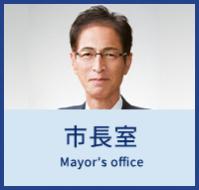Mathematicians who have multiplied by "3 + 1 = 5" talk about how to watch the child's arithmetic. Let's share the path you think "5 is it" ... I want to cherish a new step and make a mistake.However, there was partially correct inference. attention!Sukusukuku voice
Takashi Taniguchi, Professor of Kobe University Graduate School of Science
数字に興味を持ち始める3歳ごろから、子どもたちは時につまずきながらも、だんだんと数の世界に親しんでいく。算数は正解・不正解が分かりやすいだけに、子どもの間違いや、得意・不得意を気にする保護者も多い。算数の基礎を学ぶ小学校低学年くらいまでの段階で子どもが苦手意識を持たないよう、周りの大人はどうサポートすればいいか。数学の専門家に聞いた。"3 + 1 = 5".If the child answered the issue of addition, both school teachers and parents would usually have "x".
However, there is a mathematician who has made it "○".Takashi Taniguchi (44), a professor at the Graduate School of Science, Kobe University, is a generation of agent.He was 3-4 years old at the time, and he asked his daughter, who had just remembered the addition, and said "5", saying, "Yes, 5."He did not teach the correct answer "4".
Mr. Taniguchi said, "The answer is bigger than 3, and it is not the number of outstanding of 7 or 8. Above all, my daughter, who had been adding a finger up to that point, derived without using her fingers for the first time.It was an answer. "She said, "I will eventually be able to add it. I wanted to cherish a new step without using my fingers."
Taniguchi, who is now the eldest daughter of an elementary school student and two children of kindergarten children.He observed the two people working on arithmetic, always had a reason to make mistakes, and were surprised to be partially correct.This discovery is introduced in his recent book, "Why is it the mathematics of children, why?" (Iwanami Shoten).
The child is denied that the answer he thought was wrong, and as he could only impose the correct answer, he lost his willingness to think.Taniguchi says, "Even if you are incorrectly recognized at some point, children have the power to realize incorrect and modify them as they learn."
However, I am worried about incorrect answers, and if I have x in the test, I want to solve it again.How should I call out?Mr. Taniguchi advises, "What did you think and answered, or if you're in trouble if you can't reach the correct answer?"
Don't forcibly derive the correct answer, first listen to the child's story.If you don't decide on your child's thoughts, tell them why you thought so, sympathize with the part you can understand, and if you are impressed or interesting, tell your child."When I hear the wrong answer, I often think," Hey, did you think about that? "
"If you are in trouble because you are stuck, you can tell the hints and remove the difficulties. If you want to hear the story, you will be listening."The support that the child needs differs in individual cases.Watch the child and take a help boat while thinking about when it is most effective to work.
The important thing in gaining the power of arithmetic in the long run is the attitude of thinking with his own head.Mr. Taniguchi said, "The answer that I came up with is a nice thing, regardless of whether it is correct. It is not exciting to teach the correct answer or correct the error, but enjoy the path that the child thinks together."
"I want you to avoid deciding or saying," This child is not good at arithmetic. "Like mental and physical development, there are individual differences in how to learn arithmetic and progress."If the child is learning at his own pace and his interest, you don't have to be impatient. The important thing is to learn arithmetic in a way that suits you. That is the food for the person himself.Will be. "
Takashi Taniguchi's "Children's arithmetic, why?" (Iwanami Shoten)








